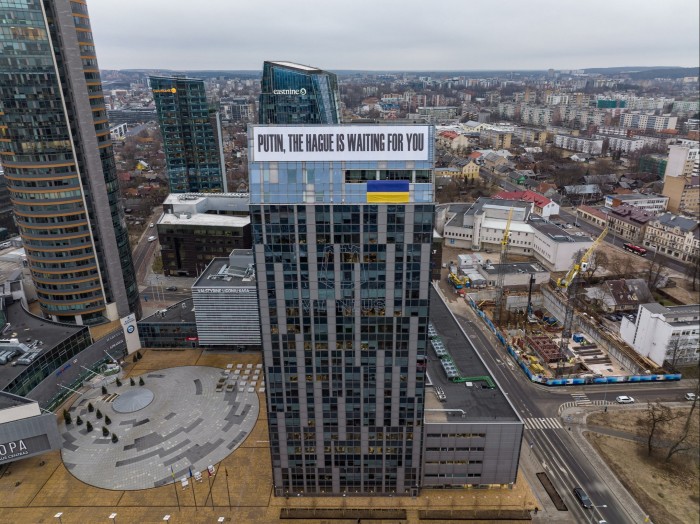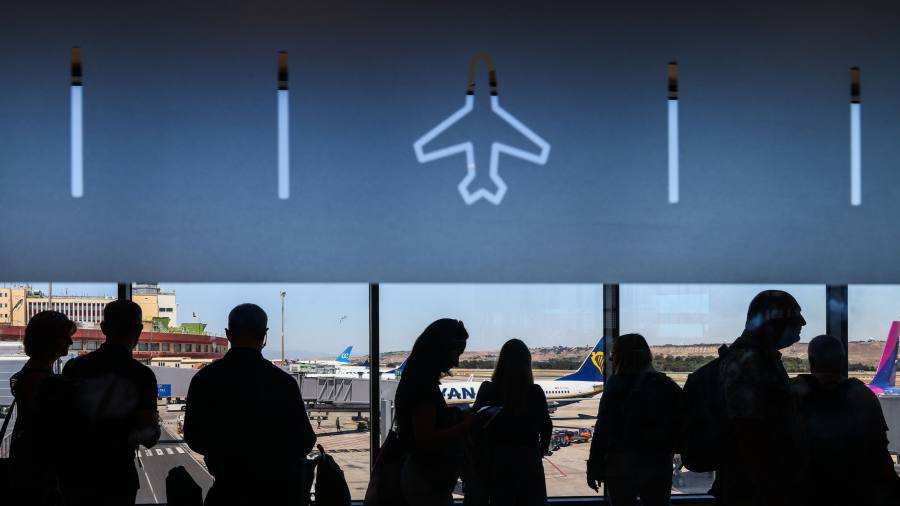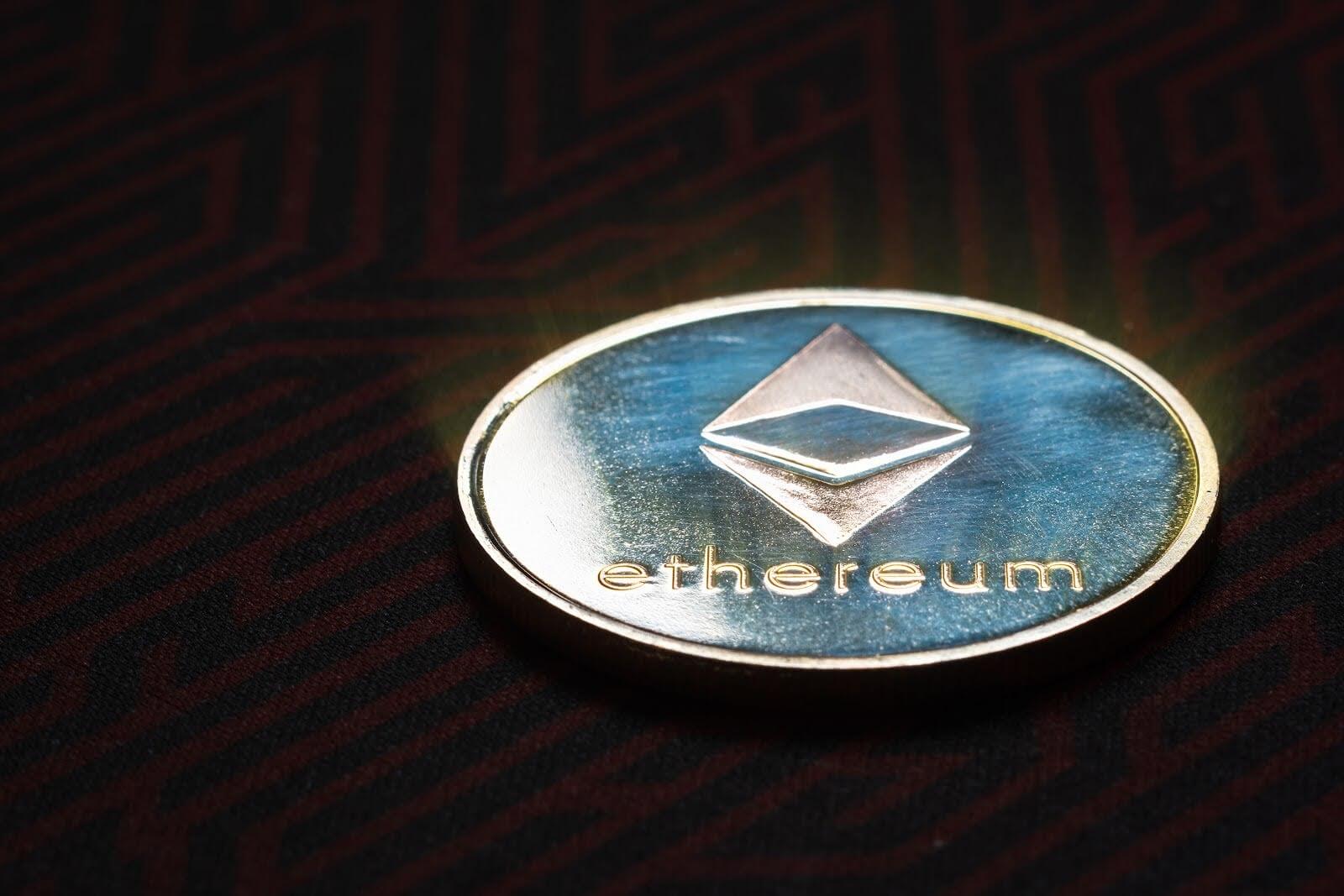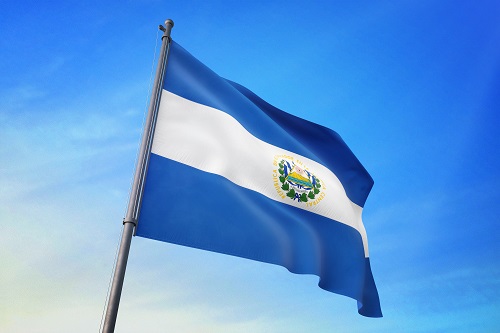Shortly before flying to Lithuania’s capital city, I spot some posters on a wall in London. “Got fired by Meta or Twitter?” they shout in bold red capitals, and then, underneath, “Move to Vilnius”, with a QR code for details. This kind of guerrilla marketing is typical of recent campaigns by the Baltic capital to attract talent, particularly from the tech sector. Lithuania is already one of the fastest-growing fintech hubs in the EU and there are plenty of start-ups, including the second-hand fashion unicorn Vinted, but to grow further it needs people.
The city’s marketing campaign has a second function, which is about a small, recently independent nation making itself known to the rest of the world. The tourist board gives me a tote bag, which says “I Only Date People Who Know Where Vilnius Is” (fortunately my husband does). And then there’s my personal favourite, an advert featuring the head and shoulders of a naked young woman with an ecstatic smile on her face. The slogan: “Vilnius. The G-spot of Europe. Nobody knows where it is, but when you find it — it’s amazing.”
Vilnius has a long history of welcoming dynamic outliers. Seven hundred years ago, the city’s founder, Grand Duke Gediminas of Lithuania, fired off letters to principalities across Europe inviting merchants and craftsmen to come to Vilnius. He offered them tax exemptions and promised religious tolerance towards Christians and Jews. At that time, Lithuania remained pagan, having spent almost two centuries fighting off the Crusaders. It even merits a mention in Chaucer’s Canterbury Tales, when the Knight recalls fighting there. It was the last country in Europe to adopt Christianity, in 1387, choosing instead to worship multiple gods representing the natural world, from oak trees to grass snakes.
“The Gediminas letter inspires me,” says the current mayor of Vilnius, Remigijus Šimašius, a tall, blond, smiley man who is relentlessly positive about his city. “It shows that we have been a liberal city from the beginning and that being open to the outside world is in our genes.”
When he took over as mayor eight years ago, he went around all the start-ups and asked them what they wanted. The answer was better public transport, more kindergartens and better public spaces, all of which he claims to have delivered. Affordable rents are also an attraction, with a two-bedroom flat in the old medieval city centre costing around €700 a month.
I’m in Vilnius along with other European journalists for the city’s 700th birthday celebrations, which will continue throughout 2023. But nobody can escape the shadow of what is happening next door. Russian guns are pointing at Lithuania from many directions, including Moscow’s enclave in Kaliningrad to the west and Belarus to the south. Ukrainian flags are everywhere and a banner with “Putin, The Hague Is Waiting for You” hangs over city hall offices. Lithuania has been warning about the threat from Moscow ever since Russian tanks rolled into Georgia in 2008 but tended to be written off by its fellow EU and Nato members as Russophobes. “On February 24, we went from being troublemakers to experts overnight,” says the mayor.
“There was a universal assumption immediately after the Russian invasion that Kyiv would fall and that we would be next,” says the deputy foreign minister, Mantas Adomėnas. People were packing bags and poring over maps of Europe, planning their escape routes. “Now we realise that we overestimated Russian military strength.”
Adomėnas, who has a PhD in Classics from Cambridge and likes to quote Homer, is impatient with Nato’s response. “Soon it will be a year since the invasion and Nato’s eastern flank has still not been fortified. Moscow will launch a new offensive in the next couple of months, so speed is of the essence.” There is only one Nato battalion based on Lithuanian soil right now and the government wants at least two more. Were Russian tanks to cross the border, Article 5 of Nato would be triggered, and the entire western alliance would be required to declare war.
Over afternoon tea at the foreign ministry, Adomėnas muses that Vilnius now feels like a border city, a bit like Vienna during the cold war. It’s full of refugees from Ukraine, and thousands of freedom fighters and independent journalists have settled here from Russia and Belarus, including the campaign group led by the imprisoned Russian opposition leader Alexei Navalny. Their presence, combined with that of the German-led Nato battalion, means the Lithuanian security forces have been busy monitoring a huge upsurge in Russian cyber attacks and disinformation over the past 11 months.
For a small country, Lithuania punches above its weight in the art world. In 2019, the country took the top prize at the Venice Biennale (in the visual art world, that’s the equivalent of an Olympic gold). The winning work, Sun & Sea, was an opera created by three female artists. It was performed on an indoor artificial beach with a cast of characters whose stories were woven into an apocalyptic tale of human greed leading to eco-disaster.
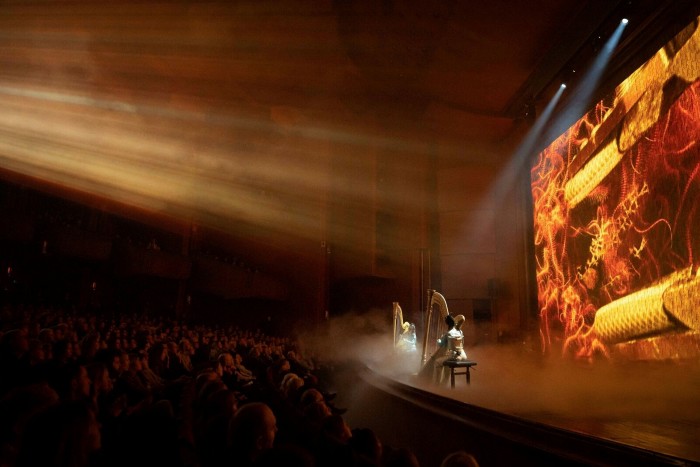
Vilnius is building on the success of Sun & Sea by inaugurating its own biennale devoted to performance art. The first edition is this summer. I’m invited to the January launch, a performance by the artist and film-maker Emilija Škarnulytė, a fearless free diver who likes to dress up as a mermaid and works with marine biologists.
For one night only she has been given the run of the Vilnius opera house, a striking modernist Soviet building with a wraparound glass facade. Using images shot from a submarine along with lights, lasers and smoke, the entire theatre (not just the auditorium) is transformed into a dark undersea world populated as much by man-made debris as by marine life. Massed choirs in black hoods accompanied by a hypnotic electronic score further immerse the audience, making me feel as if I’ve swum into an episode of David Attenborough’s Blue Planet.
The following evening, I visit the State Youth Theatre to meet the Ukrainian film-maker Sergei Loznitsa, who is directing his first stage play. Triumph of Death is a harrowing piece that leaves the audience shell-shocked as the curtain goes down.
Set in Nazi-occupied Ukraine, Loznitsa’s play is based on Jonathan Littell’s award-winning Holocaust novel The Kindly Ones. The entire production has been mired in controversy, with calls for it to be cancelled because it touches on Ukrainian collaboration and thus, it is argued, plays into Putin’s propaganda. Loznitsa says that his critics had not even seen the final script when they started attacking the production. Fortunately, the Lithuanian ministry of culture refused to bend to the pressure, and the play opened to positive reviews.
“It describes a situation which is being repeated now,” says Loznitsa, “only the role of the Germans is being played by the Russians. They are killing Ukrainians because they’re Ukrainian. This story takes you into the mindset of a mass killing machine.” For Lithuanian audience members, there are echoes too of what happened on their own soil during the Nazi occupation, when 95 per cent of the once thriving Jewish community was murdered, with the collaboration of local paramilitaries.
As a Russian-speaking Ukrainian, Loznitsa has also been criticised for speaking out against the boycott of Russian-language films at festivals across Europe. He tells me how a festival in Spain cancelled screenings of Andrei Tarkovsky films. Even dead Russians are not exempt. “This is absurd. What has this got to do with Putin?” asks Loznitsa wearily. “Destroying culture is Soviet behaviour. That’s exactly their tactics, to cancel or airbrush stuff they didn’t like. I think most Ukrainians agree with me.”
And Lithuanians, too. It’s a testimony to the country’s openness that Loznitsa was invited by a state-subsidised theatre to put on a play which touches on a subject that is as painful for Lithuanians as it is for Ukrainians.
Kirsty Lang is a broadcaster and writer; @thatkirstylang
Find out about our latest stories first — follow @ftweekend on Twitter
Credit: Source link


